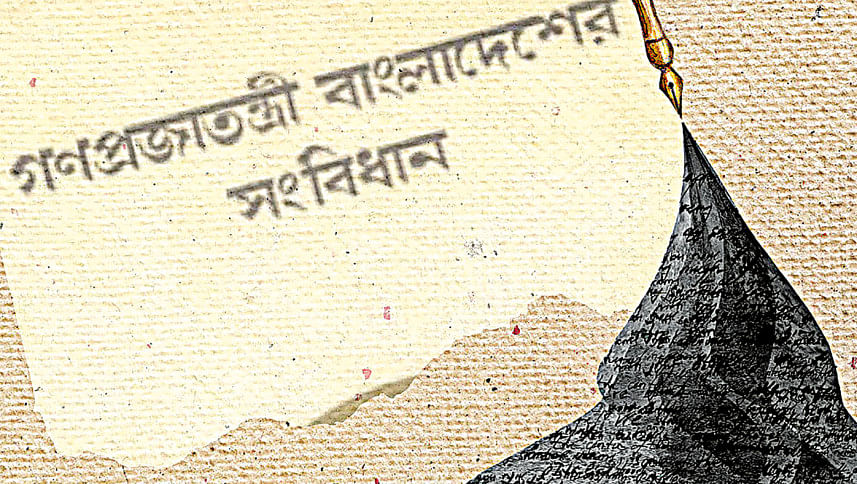The enforcement of unenforceable constitutional rights

In 1937, Ireland, for the first time, incorporated the Economic, Social and Cultural (ESC) rights in its Constitution as unenforceable directive principles. Countries such as India and Bangladesh followed the same model in their respective Constitutions. However, there has been a ubiquitous practice by the Courts of these countries to interpret the Civil and Political (CP) rights (e.g., the 'right to life') in such an extended manner by which several ESC rights, despite being textually unenforceable, have been enforced indirectly. In my view, such an interpretation is immensely problematic and rather, an amendment of Article 8(2) of the Constitution is required.
It is traditionally believed that the enforcement of ESC rights implies the imposition by the judiciary of positive obligations on the executive. In other words, giving a positive mandate to the Government often involving budgetary implications is considered to be the main way of 'enforcement' of such rights. For instance, a judicial order to rehabilitate victims of arbitrary eviction, or a mandate to manage necessary food supplicants for a petitioner, etc. are considered enforcement of ESC rights.
In this regard, the true scope of 'judicial review' should also be reconsidered. The doctrine of judicial review does not only encompass the power of the Court to strike down a law inconsistent with the Constitution but also includes the power of judicial scrutiny. Thus, the Court may find a right judicially enforceable, but it may not always direct the government to take positive actions. Rather, it has the power to determine, based on the 'reasonableness doctrine', whether the applicant is eligible to get the said order.
In every consideration, Economic, Social and Cultural rights should be made enforceable through parliamentary amendment to align with the current global trend and 'judicial enforcement' must be understood as 'judicial scrutiny' for actual enforcement of those rights.
The case of South Africa is illustrative in this regard. The Constitution of South Africa (1998) made all rights (both ESC and CP) enforceable, and the Courts of South Africa played a pivotal role in enforcing them. For instance, in the Soobramoney v Minister of Health (1997) case, the Court denied access to emergency medical care from the state hospital considering resource constraints, although the right to health care was enshrined in Article 27 of the Constitution. On the other hand, in the Minister of Health v Treatment Action Campaign (2002) case, the Court directed the government to make the Nevirapine vaccine available where they are required. Thus, the two cases show how the South African Courts have used judicial scrutiny to enforce ESC rights without breaching the doctrine of separation of power.
Clearly, the framers of the Constitution of Bangladesh in 1972 did not intend to enforce ESC rights as 'right to health care' through the umbrella term of 'right to life'. They had deliberately excluded the enforceability of the ESC rights contained in Part II of the Constitution under Article 8(2). Such a decision was inevitable due to the then persisting vulnerable economic situation of the country.
Besides, ESC rights were deemed unenforceable in the 1970s due to the absence of any enforcement mechanisms of the International Covenant on the Economic, Social and Cultural Rights at that time. But in 2013, such normative inconsistency was removed with the adoption of an Optional Protocol to the ICESCR. Many countries, such as South Africa, have made ESC rights enforceable subject to resource constraints and progressive realisation.
In fact, members of our constituent assembly did not intend to be keep ESC rights unenforceable forever. Tajuddin Ahmed, for instance, stated in the Constituent Assembly that the future parliament may take decisions on their enforceability. Since the situation has changed and the country's economy has become economically stronger than in 1971, the parliament may now amend Article 8(2) and make Part II of the Constitution enforceable subject to resource constraints progressively.
Therefore, in every consideration, ESC rights should be made enforceable through parliamentary amendment to align with the current global trend and 'judicial enforcement' must be understood as 'judicial scrutiny' for actual enforcement of those rights. Without expressly making ESC rights enforceable, it is submitted that their indirect enforcement through the 'right to life' can be regarded as one kind of deception on the constitution.
The writer teaches law at Presidency University, Bangladesh.

 For all latest news, follow The Daily Star's Google News channel.
For all latest news, follow The Daily Star's Google News channel. 



Comments